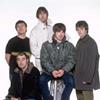Rock Band - Brit Pop Legends
Professional
Channels and Networks

Oasis were an English rock band formed in Manchester in 1991. Developed from an earlier group, the Rain, the band originally consisted of Liam Gallagher (lead and backing vocals, tambourine, acoustic guitar), Paul Bonehead Arthurs (rhythm guitars, keyboards, bass), Paul Guigsy McGuigan (bass guitar) and Tony McCarroll (drums and percussion).
Liam... Once the music gets in you, it doesn't leave you.
The idea of sitting at home, not making music, just makes me want to throw up.
Upon returning to Manchester, Liam's older brother, Noel Gallagher (lead and rhythm guitars, backing and lead vocals, keyboards, bass, drums) joined as a fifth member, which formed the band's core and settled line-up. During the course of their existence, they have undergone various line-up changes.
Noel... Gone are the days when bands like The Smiths and The Jam would always be in the top ten. Oasis are probably the last of the big – and I use this term because I can’t think of another – ‘alternative’ bands to really make an impact on the country.
Oasis's debut album, Definitely Maybe, was released on 29 August 1994, entering the charts at number one within a week of its release, and at the time becoming the fastest selling debut album in the UK.
Released in 1995, Oasis' second album, (What's the Story) Morning Glory? was a worldwide commercial success, selling over four million copies and becoming the fifth-best-selling album in UK chart history. By 2008, it had sold up to 22 million units worldwide, making it one of the best-selling albums of all time.
On August 10th and 11th 1996 they played sold out shows at Knebworth House playing to an audience of 125,000 on each night (2.5 million people applied for tickets, meaning the possibility of 20 sold out nights). This was a record-breaking number for an outdoor concert held in the UK at the time, and remains the largest demand for a show in British history.
Their third studio album Be Here Now was released in August 1997. By the end of the first day of release, Be Here Now had sold 424,000 units and by the end of business on Saturday of that week sales had reached 696,000, making it the fastest-selling album in British history.
Noel... The 90s was not the beginning of something - it was the end of something. It was the end of the music business as we knew it. We were the last rock stars.
Standing on the Shoulder of Giants, was released in February 2000 to good first-week sales. It reached number one on the British charts and peaked at number 24 on the Billboard charts.
Released in July 2002, Heathen Chemistry reached number 1 in the UK and number 23 in the US.
Don't Believe the Truth came out in May 2005 and also entered the UK album charts at number one. To date the album has sold more than 7 million copies worldwide.
Dig Out Your Soul, the band's seventh studio album, was released on 6 October 2008 and went to number one in the UK and number five on the Billboard 200.
Despite parting ways in 2009, Oasis remain hugely influential in British music and culture, and are now recognised as one of the biggest and most acclaimed bands of the 1990s. With their record breaking sales, concerts, sibling disputes, and their high-profile chart battle with Britpop rivals Blur, Oasis were a major part of 1990s UK pop culture, an era dubbed Cool Britannia.
Liam... I was walking along and this chair came flying past me, and another, and another, and I thought, man, is this gonna be a good night.
A documentary titled Oasis: Supersonic was released on 26 October 2016, which tells the story of Oasis from their beginnings to the height of their fame during the summer of 1996.
To learn more about Oasis click and explore any of their media channels and network links in the tool-bar above.



